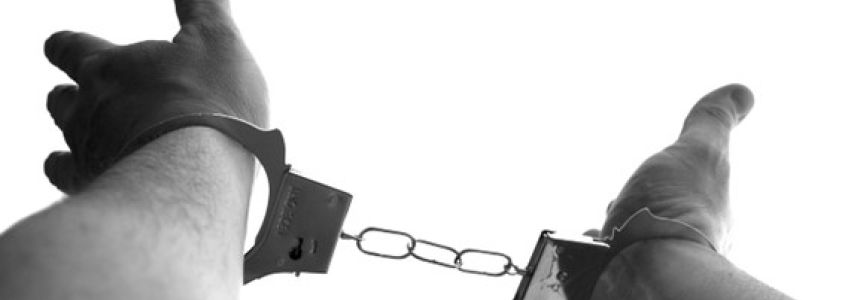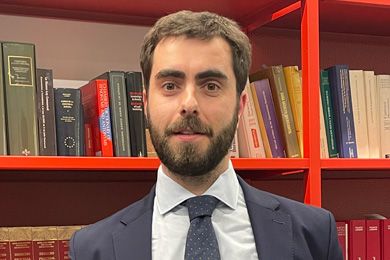Crimes against Public Health and Drug Trafficking. Criminal Law.
Are you involved in a matter related to public health or drug trafficking?
Criminal Lawyers expert in crimes against public health!
- Public health offences
- Drug trafficking
- Processing
- Distribution of harmful products
- Dangerous adulteration
- Marketing of dangerous substances
- Doping offences
Defence in public health and drug trafficking crimes

Our Criminal Lawyers, specialised in Criminal Law, will be able to offer you our professional services in the defence of crimes related to public health and drug trafficking. We can represent you both in Madrid and in the rest of Spain.
Remember that it is important that a Lawyer specialised in Crimes against public health and drug trafficking assists and defends you from the very first moment. From the statement at the Police Station, Court or in court.
Our Criminal Lawyers in Madrid will advise you on the steps and procedures to be followed at all times.
Contact us at any of our offices in Madrid
Remember that Despacho G.Elias y Muñoz Abogados has expert criminal lawyers in Madrid and the Community of Madrid who will advise you on any matter related to criminal law.
Contact us, and we will give you an appointment in our offices in Madrid and Community of Madrid in Pozuelo; Villalba or Majadahonda.
Experts in the protection of criminal rights
If you are involved in a crime against public health or drug trafficking, we can advise and assist you.
The criminal lawyers at G. Elías y Muñoz Abogados, with professional offices in Madrid, Majadahonda and Pozuelo de Alarcón, are specialists in resolving any problems that may arise from crimes against public health.
What types of public health or drug trafficking offences are there?
There are four types of offences:
a) offences relating to the preparation, dispatch, supply or trade of products harmful to health or dangerous chemical substances (CP art.359 and 360), punishable by a prison sentence of 6 months to 3 years and a fine of 6 to 12 months, and special disqualification for profession or industry for 6 months to 2 years and a fine of 6 to 12 months and disqualification for the profession or trade of 6 months to 2 years, respectively.
b) offences related to the preparation, dispatch, dispensing or simulation of medicinal products, including offences related to the doping of sportsmen and sportswomen (PC art.361, 362, 362 bis, 362 ter, 362 quáter and 362 quinquies); punishable by various penalties including deprivation of liberty for a period of between 6 months and 2, 3 or 4 years; a fine of 6 to 12 or 18 months; as well as special disqualification for a profession or trade of 6 months, 1 year or 2 years to 3 or 5 years, depending on the specific offence, as well as higher penalties in degree, when the offence is perpetrated under certain circumstances set out in PC Art.362 quater (no. 14970 s.);
c) the offences of preparation, distribution, trafficking, trade, poisoning or dangerous adulteration of products or substances intended for consumption (PC art.363, 364 and 365) with prison sentences of between 1 and 2 to 4 and 6 years imprisonment; a fine of 6 to 12 months. In addition, special disqualification from profession, trade, industry or commerce is established for a period of three to six years for producers, distributors or traders who endanger the health of consumers, while in the event that the offender is the owner or production manager of a foodstuffs factory, such disqualification is extended for a period of 6 to 10 years: no. 15015 s.; and
What is the protected legal interest?
These offences are intended to protect public health.
What are the degrees of implementation?
A general characteristic of crimes against public health is that they are of anticipated consummation, which makes impossible, or at least weakens, the possibility of their unfinished execution, in short, the imperfect forms of execution.
With regard to those criminal offences in which a specific endangering of life or health is required, it is necessary to prove the concurrence of such danger for the consummation, making possible the assessment of the attempt, which will take place when the typical conduct is carried out.
What are the most common crimes?
The most common crimes against public health are drug trafficking and possession of drugs, although there are other equally important offences such as those related to doping or medicines.
Why G. Elias y Muñoz Abogados?
Due to the special complexity of drug trafficking crimes or crimes against public health, if you are accused of one of the aforementioned crimes, we advise you to contact us for appropriate advice.
The criminal lawyers at G. Elías y Muñoz Abogados, with professional offices in Madrid, Majadahonda and Pozuelo de Alarcón, are specialists in resolving any problems that may arise from drug trafficking offences.
Where is it regulated in the Penal Code?
The current Penal Code contains different articles regulating offences against public health:
Article 359
Anyone who, without being duly authorised, prepares substances that are harmful to health or chemical products that can cause havoc, or dispatches or supplies them, or trades in them, will be punished with a prison sentence of six months to three years and a fine of six to twelve months, and special disqualification from a profession or industry for a period of six months to two years.
Article 360
Anyone who, being authorised to traffic in the substances or products referred to in the previous Article, dispatches or supplies them without complying with the formalities provided for in the respective laws and regulations, shall be liable to a fine of six to twelve months and disqualification from the profession or trade for a period of six months to two years.
Article 361
Anyone who manufactures, imports, exports, supplies, brokers, markets, offers or places on the market, or stores for these purposes, medicinal products, including those for human and veterinary use, as well as investigational medicinal products, which lack the necessary authorisation required by law, or medical devices which do not have the conformity documents required by the general provisions, or which are deteriorated, out of date or do not comply with the technical requirements relating to their composition, stability and efficacy, and thereby create a risk to the life or health of persons, shall be punished by a prison sentence of between six months and three years, a fine of between six and twelve months and special disqualification from the profession or trade for between six months and three years.
Article 362
1. Any person shall be liable to imprisonment for a term of six months to four years, a fine of six to eighteen months and disqualification from engaging in any profession or trade for a term of one to three years who prepares or manufactures
- (a) a medicinal product, including medicinal products for human and veterinary use, as well as investigational medicinal products; or an active substance or an excipient of such a medicinal product;
- (b) a medical device, as well as accessories, components or materials which are essential to its integrity;
in such a way as to misrepresent its identity, including, where appropriate, the packaging and labelling, the expiry date, the name or composition of any of its constituents, or, where appropriate, the strength of the constituents; its origin, including the manufacturer, the country of manufacture, the country of origin and the holder of the marketing authorisation or of the conformity documents; data concerning compliance with legal requirements or requirements, licences, conformity documents or authorisations; or their history, including records and documents concerning the distribution channels used, in so far as they are intended for public consumption or use by third parties, and they pose a risk to human life or health.
2. The same penalties shall be imposed on anyone who alters, when manufacturing or preparing it or at a later time, the quantity, dosage, expiry date or genuine composition, as authorised or declared, of any of the medicinal products, substances, excipients, medical devices, accessories, elements or materials mentioned in the previous section, in a way that reduces their safety, efficacy or quality, generating a risk to the life or health of persons.
Article 362 BIS
Anyone who, with knowledge of their falsification or counterfeiting, imports, exports, advertises, offers, displays, sells, provides, dispenses, dispatches, packages, supplies, supplies, including intermediation, traffics in, distributes or places on the market any medicinal products, active substances, excipients, medical devices, accessories, elements or elements of the medical device, or any other medical product shall be punished by a prison sentence of six months to four years, a fine of six to eighteen months and special disqualification for one to three years, and shall be disqualified from any profession or trade, packages, supplies, brokers, traffics, distributes or places on the market any of the medicinal products, active substances, excipients, medical devices, accessories, elements or materials referred to in the previous article, and thereby creates a risk to the life or health of persons.
The same penalties shall be imposed on anyone who acquires them or holds them in storage for the purpose of public consumption, use by third parties or any other use which may affect public health.
Article 362 TER
Anyone who draws up any false or misleading document relating to any of the medicinal products, active substances, excipients, medical devices, accessories, elements or materials referred to in Section 1 of Article 362, including their packaging, labelling and method of use, in order to commit or facilitate the commission of one of the offences under Article 362, shall be sentenced to six months to two years' imprisonment, a fine of six to twelve months and special disqualification for six months to two years.
Article 362 QUATER
The penalties higher in degree than those indicated in Articles 361, 362, 362 bis or 362 ter shall be imposed when the offence is perpetrated in any of the following circumstances:
1ª That the offender is an authority, public official, medical practitioner, health professional, teacher, educator, physical or sports trainer, and is acting in the exercise of his or her position, profession or trade.
2ª That the medicines, active substances, excipients, medical devices, accessories, elements or materials referred to in art. 362:
a) have been offered through mass media; or
b) have been offered or provided to minors, disabled persons in need of special protection, or persons who are particularly vulnerable in relation to the product provided.
3ª The offender belonged to a criminal organisation or group whose purpose was to commit this type of offence.
4ª That the acts were carried out in establishments open to the public by the managers or employees of the same.
Article 362 QUINQUIES
1. Those who, without therapeutic justification, prescribe, provide, dispense, supply, administer, offer or facilitate to non-competitive federated sportspersons, non-federated sportspersons practising recreational sport, or sportspersons taking part in competitions organised in Spain by sports bodies, prohibited substances or pharmacological groups, as well as non-regulated methods, intended to increase their physical capacities or to modify the results of the competitions, which, due to their content, repeated ingestion or other concurrent circumstances, endanger their life or health, shall be punished with a prison sentence of six months to two years, a fine of six to eighteen months and special disqualification from public employment or office, profession or trade, for two to five years.
2. The penalties provided for in the previous section shall be imposed in their upper half when the offence is perpetrated in any of the following circumstances:
1ºThat the victim is a minor.
2º That deception or intimidation has been used.
3ºThat the perpetrator has taken advantage of a relationship of work or professional superiority.
Article 362 SEXIES
In the offences provided for in the previous Articles of this Chapter, the substances and products referred to in Articles 359 et seq. shall be subject to confiscation, as well as the goods, means, instruments and proceeds, subject to the provisions of Articles 127 to 128.
Article 363
Producers, distributors or traders who endanger the health of consumers shall be punished with a prison sentence of one to four years, a fine of six to twelve months and special disqualification from profession, trade, industry or commerce for a period of three to six years:
1. By offering food products on the market with omission or alteration of the requirements established in the Laws or regulations on shelf life or composition.
2. By manufacturing or selling beverages or foodstuffs intended for public consumption and harmful to health.
3. Dealing in adulterated goods.
4. By manufacturing or dealing in products the use of which is not authorised and which are injurious to health.
5. Concealing or removing articles intended to be rendered unusable or disinfected, in order to trade in them.
Article 364
1. Anyone who adulterates foodstuffs, substances or beverages intended for the food trade with additives or other unauthorised agents likely to cause harm to human health shall be liable to the penalties set out in the previous article. If the offender is the owner or the person responsible for the production of a foodstuffs factory, he shall also be sentenced to special disqualification from any profession, trade, industry or commerce for a period of six to ten years.
2. The same penalty shall be imposed on anyone who engages in any of the following conducts:
1º) Administering to animals whose meat or products are intended for human consumption substances which are not permitted and which generate a risk to human health, or in higher doses or for purposes other than those authorised.
2º) Slaughtering animals for slaughter or using their products for human consumption, knowing that the substances mentioned in the previous number have been administered to them.
3º) Slaughtering animals for slaughter to which therapeutic treatments have been applied by means of substances referred to in paragraph 1.
4º) Dispatching for public consumption the meat or products of animals for slaughter without respecting the waiting periods provided for in the regulations.
Article 365
Anyone who poisons or adulterates drinking water or foodstuffs intended for public use or for consumption by a community of persons with infectious substances or other substances that may be seriously harmful to health, shall be punished by imprisonment for a term of two to six years.
Article 366
COMPARATIVE MODIFICATIONS
When, in accordance with the provisions of Article 31 bis, a legal person is responsible for the offences set out in the previous Articles of this Chapter, it shall be sentenced to a fine of one to three years, or double to five times the value of the substances and products referred to in Articles 359 and following, or of the benefit that may have been obtained or could have been obtained, whichever amount is higher.
In accordance with the rules laid down in art. 66 bis, the judges and courts may also impose the penalties set out in letters b) to g) of paragraph 7 of art. 33.
Article 367
If the acts provided for in all the previous Articles were committed with gross negligence, the penalties shall be those which are lower in degree, respectively.
Article 368
Those who carry out acts of cultivation, processing or trafficking, or otherwise promote, encourage or facilitate the illegal consumption of toxic drugs, narcotic drugs or psychotropic substances, or possess them for those purposes, shall be punished with a prison sentence of three to six years and a fine of three times the value of the drug that is the object of the offence if it is a substance or product that causes serious damage to health, and a prison sentence of one to three years and a fine of two times the value of the drug in other cases.
Notwithstanding the provisions of the previous paragraph, the Courts may impose a lower penalty than those indicated in view of the minor nature of the offence and the personal circumstances of the offender. This power may not be used if any of the circumstances referred to in articles 369 bis and 370 apply.
Article 369
1. The penalties set out in the previous article and a fine of four times the amount shall be imposed when any of the following circumstances apply:
1st) The guilty party is an authority, public official, medical practitioner, social worker, teacher or educator and is acting in the exercise of his or her position, profession or trade.
2nd) The offender participates in other organised activities or whose execution is facilitated by the commission of the offence.
3rd) The acts were carried out in establishments open to the public by the persons in charge or employees thereof.
4th) The substances referred to in the previous article are provided to minors under 18 years of age, to the mentally handicapped or to persons undergoing treatment for addiction or rehabilitation.
5th) The quantity of the aforementioned substances which are the object of the conduct referred to in the previous article is of notorious importance.
6th) The said substances are adulterated, manipulated or mixed with each other or with others, increasing the possible damage to health.
7th) The conduct described in the previous article takes place in or near educational centres, military centres, establishments or units, penitentiary establishments or rehabilitation or rehabilitation centres.
8th) The offender uses violence or displays or makes use of weapons to commit the act.
Article 369 BIS
When the acts described in art. 368 have been carried out by those who belong to a criminal organisation, the penalties of imprisonment of nine to twelve years and a fine of four times the value of the drugs shall be imposed in the case of substances and products that cause serious damage to health, and imprisonment of four years and six months to ten years and the same fine in other cases.
The heads, managers or administrators of the organisation shall be sentenced to the penalties higher in degree than those indicated in the first paragraph.
When, in accordance with the provisions of art. 31 bis, a legal person is responsible for the offences set out in the two previous articles, the following penalties shall be imposed:
(a) A fine of two to five years, or three to five times the value of the drug when the resulting quantity is higher, if the offence committed by the natural person is punishable by imprisonment for more than five years.
b) A fine of one to three years, or double to four times the value of the drug when the resulting quantity is higher, if the offence committed by the natural person is punishable by a term of imprisonment of more than two years not included in the previous subparagraph.
In accordance with the rules laid down in Art. 66 bis, the judges and courts may also impose the penalties set out in letters b) to g) of paragraph 7 of Art. 33.
Article 370
The penalty shall be imposed that is one or two degrees higher than that indicated in art. 368 when:
1º) Minors under 18 years of age or mentally handicapped persons are used to commit these offences.
2º) It involves the heads, administrators or persons in charge of the organisations referred to in circumstance 2 of section 1 of article 369.
3º) The conduct described in Article 368 is extremely serious.
Cases in which the quantity of the substances referred to in Article 368 significantly exceeds that considered to be of notorious importance, or ships, boats or aircraft have been used as a specific means of transport, or the aforementioned conducts have been carried out by simulating international trade operations between companies, or it involves international networks dedicated to this type of activity, or when three or more of the circumstances provided for in Article 369.1 are present, are considered to be extremely serious.
In the cases of numbers 2 and 3 above, the guilty parties shall also be fined up to three times the value of the drugs which are the object of the offence.
Article 371
1. Anyone who manufactures, transports, distributes, trades or has in his possession equipment, materials or substances listed in Table I and Table II of the United Nations Convention, done at Vienna on 20 December 1988, on illicit traffic in narcotic drugs and psychotropic substances, and any other products added to the same Convention or included in other future Conventions of the same nature, ratified by Spain, knowing that they are to be used in the illicit cultivation, production or manufacture of toxic drugs, narcotic drugs or psychotropic substances, or for these purposes, shall be punished with a prison sentence of three to six years and a fine of three times the value of the goods or effects.
2. The upper half of the above-mentioned penalty shall be imposed when the persons who carry out the acts described in the previous paragraph belong to an organisation dedicated to the purposes indicated therein, and the higher penalty shall be imposed on the heads, administrators or persons in charge of the said organisations or associations.
In such cases, the Judges or Courts shall impose, in addition to the corresponding penalties, that of special disqualification of the offender from exercising their profession or industry for a period of three to six years, and the other measures provided for in Article 369.2.
Article 372
If the acts provided for in this Chapter were committed by a businessman, intermediary in the financial sector, medical practitioner, public official, social worker, teacher or educator, in the exercise of their position, profession or trade, they shall be sentenced, in addition to the corresponding penalty, to special disqualification from public employment or position, profession or trade, industry or commerce, for a period of three to ten years. The penalty of absolute disqualification from ten to twenty years shall be imposed when the aforementioned acts were carried out by an authority or agent of the same, in the exercise of their office.
For this purpose, medical practitioners, psychologists, persons in possession of a health qualification, veterinary surgeons, pharmacists and their assistants are considered to be medical practitioners.
Article 373
Provocation, conspiracy and proposition to commit the offences provided for in articles 368 to 372 shall be punished with a penalty one to two degrees lower than that corresponding, respectively, to the acts provided for in the previous precepts.
Article 374
In the offences provided for in the second paragraph of section 1 of article 301 and in articles 368 to 372, in addition to the penalties applicable to the offence committed, the toxic drugs, narcotics or psychotropic substances, the equipment, materials and substances referred to in article 371, as well as the goods, means, instruments and proceeds shall be subject to confiscation, subject to the provisions of articles 127 to 128 and to the following special rules:
1st Once the sentence has become final, the destruction of the samples that have been set aside shall be carried out, or the destruction of the entirety of what has been seized, in the event that the competent judicial body has ordered their preservation.
2ª The assets, means, instruments and proceeds definitively confiscated by sentence, which may not be used to satisfy the civil liabilities arising from the offence or the procedural costs, shall be awarded in full to the State.
Article 375
Convictions by foreign judges or courts for offences of the same nature as those provided for in Articles 361 to 372 of this Chapter shall produce the effects of recidivism, unless the criminal record has been cancelled or may be cancelled under Spanish law.
Article 376
In the cases provided for in articles 361 to 372, the Judges or Courts, reasoning in the sentence, may impose a sentence one or two degrees lower than that established by law for the offence in question, provided that the subject has voluntarily abandoned his criminal activities and has actively collaborated with the authorities or their agents either to prevent the commission of the offence, or to obtain decisive evidence for the identification or capture of others responsible, or to prevent the action or development of the organisations or associations to which he has belonged or with which he has collaborated.
Likewise, in the cases provided for in articles 368 to 372, the Judges or Courts may impose a sentence of one or two degrees less on the offender who, being a drug addict at the time of the commission of the offence, sufficiently proves that he or she has successfully completed a treatment for addiction, provided that the quantity of toxic drugs, narcotics or psychotropic substances was not of notorious importance or of extreme seriousness.
Article 377
Related documents
For the purpose of determining the amount of the fines imposed in application of articles 368 to 372, the value of the drugs that are the object of the offence or of the goods or effects seized will be the final price of the product or, where appropriate, the reward or profit obtained by the offender, or which he could have obtained.
Article 378
Payments made by the convicted person for one or more of the offences referred to in articles 361 to 372 shall be charged in the following order:
1º. to compensation for the damage caused and damages.
2º. to the compensation of the State for the amount of the expenses incurred on its behalf in the case.
3º. a fine
4º. to the costs of the private prosecutor or private prosecutor when payment thereof is ordered in the judgment.
5º. to the other procedural costs, including those of the defendant's defence, without preference among the interested parties.
You will have the best criminal defence
Our Criminal Lawyers, will know how to advise you well to defend you or exercise your rights in relation to crimes against public health or drug trafficking.
We have lawyers who specialise in criminal law and specialise in matters related to crimes against public health.
Trust in our lawyers specialised in criminal law.
Our lawyers specialising in criminal law
Specialised lawyersLawyers Specialising in Criminal Law
News in criminal law

Surely, on television or in the press, you have heard on more than one occasion about crimes against people's honour. However, do you know what they are and...

Computer-related crimes, also known as cybercrime or telematic crimes, are crimes committed using information and communication technologies (ICT) as a means of...

The presumption of innocence is a fundamental principle of criminal law which states that any person accused of a crime is presumed innocent until proven guilty...

Embezzlement is a crime that involves the illegal use of public or organisational funds for personal or improper purposes. In other words, embezzlement is the...

The principle of legality is one of the fundamental pillars of the rule of law and refers to the fact that the public authority is subject to the law and can...

Pyramid schemes are a type of fraud in which fraudsters recruit investors by promising high financial returns in exchange for investing money in a scheme that...

Criminal compliance, also known as criminal compliance, refers to the set of measures and procedures implemented by a company or organisation to prevent and...

Flagrante delicto (also known as in flagrante delicto or in flagrante delicto) refers to a situation in which a person is caught in the act of committing a...

El tráfico de influencias es una práctica ilícita en la cual una persona utiliza su posición de poder o influencia para obtener beneficios personales o para...

Money laundering is the process by which the illicit origin of funds obtained through criminal activity is concealed so that they appear to be the result of...

A subpoena is an official notification that a person receives, informing them that they are being investigated for an alleged crime and summoned to appear...

The third degree of imprisonment, also known as open regime or semi-liberty regime, is a modality of serving a custodial sentence that is characterised by the...




